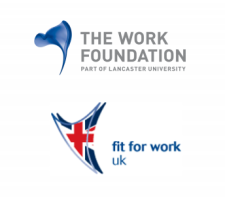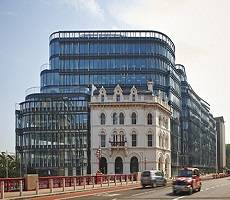October 23, 2014
Half of women would consider remaining childless rather than risk career
 The expansion of flexible working rights was not only intended to improve workplace wellbeing and productivity, but encourage mothers to remain in the workforce. But it seems there is much work to be done to convince women that work and motherhood can mix. New research from the Association of Accounting Technicians (AAT) has found that half of women believe that having a baby poses such a risk to their career that they would consider remaining childless. The survey among women of childbearing age also found that two-thirds of women (67%) are concerned about the impact that having children might have on their career and half of the women who don’t currently have children (49%) feel their current career doesn’t offer them the flexibility they would need to care for a family. Over half of mothers (55%) admitted that balancing childcare and work has been a barrier to staying in work, with one in five (20%) stating that a lack of support from their employer has made life as a working mum more difficult. (more…)
The expansion of flexible working rights was not only intended to improve workplace wellbeing and productivity, but encourage mothers to remain in the workforce. But it seems there is much work to be done to convince women that work and motherhood can mix. New research from the Association of Accounting Technicians (AAT) has found that half of women believe that having a baby poses such a risk to their career that they would consider remaining childless. The survey among women of childbearing age also found that two-thirds of women (67%) are concerned about the impact that having children might have on their career and half of the women who don’t currently have children (49%) feel their current career doesn’t offer them the flexibility they would need to care for a family. Over half of mothers (55%) admitted that balancing childcare and work has been a barrier to staying in work, with one in five (20%) stating that a lack of support from their employer has made life as a working mum more difficult. (more…)









 The world of work and the workplace is always changing. We know it. You know it. In fact, there are a whole host of people that know it, but depending on what side of the professional fence you sit on, you might approach it in different ways, looking through a different lens or with a specific focus. Or are you already bridging the professional gap? Workplace change and the numerous ramifications of it are well documented. In a world that is changing, at frightening pace, it is strange to think that many of the ways in which we work are so entrenched in 20th century thinking. We need to break away from this and outline what the future is going to look like and how we should adapt. Or do we already have the answers? This ground is well trodden. However, it could be time to reassess our thinking and the way we approach this challenge, ensuring it becomes the norm for organisations around the world.
The world of work and the workplace is always changing. We know it. You know it. In fact, there are a whole host of people that know it, but depending on what side of the professional fence you sit on, you might approach it in different ways, looking through a different lens or with a specific focus. Or are you already bridging the professional gap? Workplace change and the numerous ramifications of it are well documented. In a world that is changing, at frightening pace, it is strange to think that many of the ways in which we work are so entrenched in 20th century thinking. We need to break away from this and outline what the future is going to look like and how we should adapt. Or do we already have the answers? This ground is well trodden. However, it could be time to reassess our thinking and the way we approach this challenge, ensuring it becomes the norm for organisations around the world. There is now an unstoppable energy for radical change in the way that companies of all sizes conduct their Corporate Social Responsibility duties. There are compelling economic and social reasons for companies to construct new ways of thinking and practice around CSR that go way beyond just doing something worthy or nice, from building effective partnerships to attracting top employees. Some companies prefer terms like ‘corporate responsibility’, ‘corporate conscience’, ‘corporate citizenship’, ‘social performance’, ‘sustainability’ or even ‘future-proofing’ over CSR. But the core CSR principles are that a business voluntarily commits to embracing responsibility for its actions and to impacting positively on the environment, on society and on consumers, employees and other stakeholders.
There is now an unstoppable energy for radical change in the way that companies of all sizes conduct their Corporate Social Responsibility duties. There are compelling economic and social reasons for companies to construct new ways of thinking and practice around CSR that go way beyond just doing something worthy or nice, from building effective partnerships to attracting top employees. Some companies prefer terms like ‘corporate responsibility’, ‘corporate conscience’, ‘corporate citizenship’, ‘social performance’, ‘sustainability’ or even ‘future-proofing’ over CSR. But the core CSR principles are that a business voluntarily commits to embracing responsibility for its actions and to impacting positively on the environment, on society and on consumers, employees and other stakeholders. 













December 15, 2014
Wearable tech will change the workplace in unexpected ways
by Mark Eltringham • Comment
(more…)